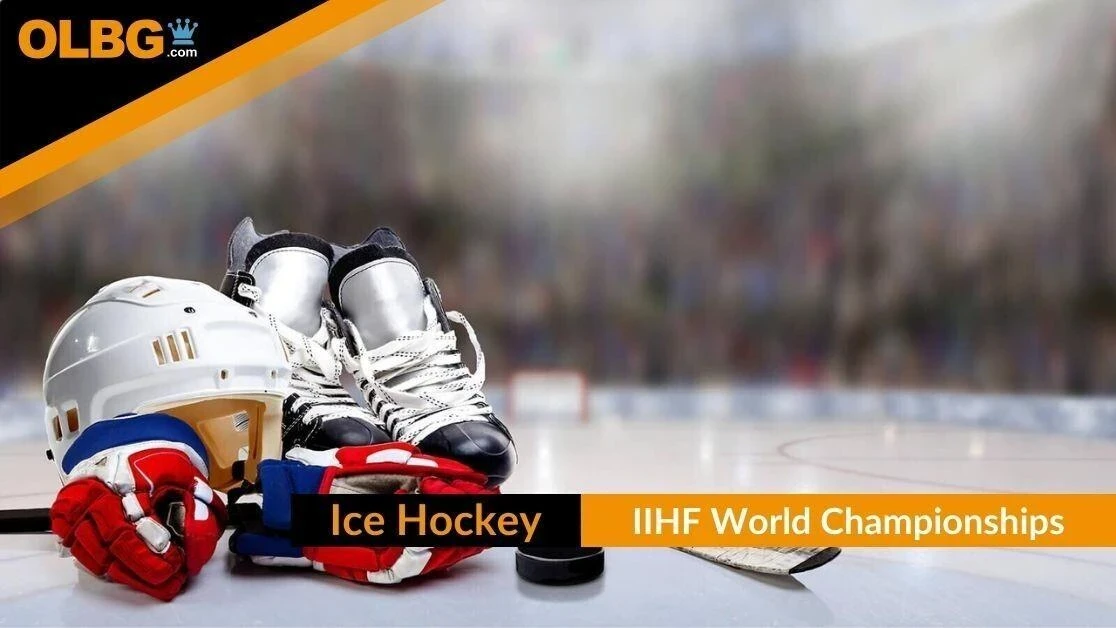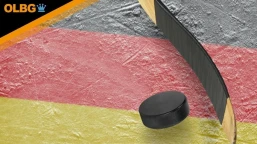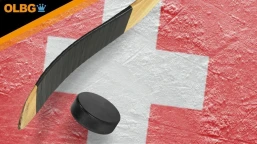
You know how punters get lost in too much data or bet blindly? I break down the stats and trends so you can feel confident you’re betting with more than just gut instinct.
2026 IIHF World Championships
This blog is dedicated to the IIHF World Championships, We will look back at the history of the tournament, which takes place annually and also look at which countries have excelled and look ahead to the 2026 tournament.
Are the 2026 IIHF World Championships taking place?
The simple answer to that is, Yes! The 2026 tournament will start on Friday, the 15th of May and run through to the final on Sunday 31st of May.
Who is hosting the 2026 IIHF World Championships?
The 2026 tournament will be hosted by Switzerland, with games being split between Zurich and Fribourg.
Where can I view the 2026 IIHF World Championships schedule?
Head over to the official IIHF site to view the schedule for the group stages of the 2026 IIHF World Championships once they have been decided.
Which social media hashtag will be used for the 2026 IIHF World Championships?
If you are looking to interact with other hockey fans during the tournament, then use the hashtag #IIHFWorlds to make your posts easily found!

Best Ice Hockey Betting Sites UK
2026 IIHF World Championships Tips & Predictions
In addition to the outright market, there will be a total of sixty-four matches throughout the tournament, which means plenty of betting options over the two weeks, and the expert ice hockey tipsters will be sharing their thoughts on each match.
We have an Ice Hockey Best Tipsters page where only the best of the best are highlighted. This page will only include tipsters who have outstanding ice hockey tips and only those who have shown a profit for their ice hockey predictions over the past year.
Alternatively, you may wish to head to the Ice Hockey Picks page instead, on there you will see all of the upcoming matches as well as the outright market and see which outcomes are receiving the most predictions, you can click through to view each match in more detail, see the tip numbers on all three markets and read any comments left by the expert ice hockey tipsters too.
If you want to follow certain tipsters throughout the tournament and want alerts for their tips, then install the OLBG Betting App. You can also view both of the above on the App, as well as many other features.
2026 IIHF World Championships Participants
Which countries are competing?
There is a total of sixteen countries that will be participating in the 2026 IIHF World Championships, made up of the hosts, the top fourteen at the 2025 tournament and two through winning Division I.
These sixteen countries will be split into two groups, which will be announced closer to the tournament.
Hosts
- Switzerland
Top 14 placement at the 2025 IIHF World Championship
- Austria
- Canada
- Czechia
- Denmark
- Finland
- Germany
- Hungary
- Latvia
- Norway
- Slovakia
- Slovenia
- Sweden
- United States
Promotion at the 2025 IIHF World Championship Division I
- Great Britain
- Italy
2026 IIHF World Championships Group A
- TBA
2026 IIHF World Championships Group B
- TBA
2026 IIHF World Championships Format
As already touched on and highlighted above, the sixteen countries have been split into two groups of eight countries. In each group, the round-robin system is used, meaning that each team will face all of the other seven in their group. Once the group stage is over, every country will have played seven times each, a total of twenty-eight games in each group, a total of fifty-six games during the group stages.
Group Standings Ordering
- Points won
- Head-to-head points
- Head-to-head goal difference
- Head-to-head number of goals scored
- Result against the closest best-ranked team outside of tied teams
- Result against the second-best-ranked team outside of tied teams
- Seeding before the tournament
Playoffs Qualification
Using the above rules, each group will be ordered from one to eight, and it is a simple process; the top four from each group advance to the playoffs, and the bottom four in each group go home!
The eight teams advancing will compete in the quarter-finals, the winners will advance to the semi-finals, the losers from the semi-finals will play in the third-place playoff game to decide which country gets the bronze medal, whilst the two winners from the semi-finals go to the final to determine the gold and silver medalists.
IIHF World Championships History
The IIHF World Championships are the sport's highest-profile international tournament, It is a tournament that takes place annually for men's international teams. The tournament was first held back in 1920 during the Summer Olympics in Antwerp, Belgium, and up until the 1968 Olympics, which were held in Mexico City, Mexico, those tournaments that took place at the Summer Olympics were considered to be the World Championships.
The first actual tournament, which was held outside of the Summer Olympics, was in 1930 when split between Chamonix (Germany), Berlin (Germany) and Vienna (Austria). After which the annual tournament kicked in, it was not held between 1940 & 1946 due to the Second World War.
For a lot of the early years, it was a case of do Canada or the Soviet Union win, two of the biggest countries in terms of ice hockey popularity, Canada won the gold medal fifteen times before the Soviet Union's first success in 1954 but the 1960s was a real turning point and one which saw the dominance switch, winning their third gold medal in 1963, the Soviet Union then went on to win an incredible nine consecutive gold medals winning every tournament up until 1971, they could only manage the silver medal in 1972, losing to Czechoslovakia who became their biggest rivals.
In 1973, the Soviet Union were at it again winning gold and they backed that up in both 1974 & 1975 before again being halted by Czechoslovakia who picked up their first back-to-back success in 1976 & 1977 but the Soviet Union regained the crown and went on to win the next five tournaments and also eight of the next ten with only Czechoslovakia (1985) and Sweden (1987) stopping their dominance.
Upcoming Tournaments
- 2026 in Switzerland
- 2027 in Germany
- 2028 in France
- 2029 in Slovakia
The dissolution of the Soviet Union in the 1990s saw the tournament become much more open; their success in 1990 was their twenty-second and last until success under Russia in 1993. Sweden won it three times in the 1990s, Czechia's first success under their new regime was in 1996, they also went on to win it in 1999, 2000 & 2001, whilst Canada won their first gold medal since 1961 when winning it in 1994, and they had more success in 1997 too.
Since Czechia won the gold medal between 1999 & 2001, no other country has managed to win three on the spin, there have been plenty of defending title successes but not three on the bounce, Canada (2003-04), Russia (2008-09), Canada (2015-16) and Sweden (2017-18) have all won back-to-back gold medals of late and Czechia who won their thirteenth gold medal in 2024 will be looking to defend their crown in 2025.
IIHF World Championships Medal Winners
Their gold in 2023 meant Canada moved clear of Russia at the top of the gold medal charts with twenty-eight golds, and overall have now won a total of fifty-three medals compared to Russia's forty-seven, of which twenty-seven have been golds.
The pair are well clear of the rest, who are headed by Czechia with thirteen gold medals and Sweden with eleven gold medals; the remainder have only won eight gold medals between them.
Some will question if the USA are underperforming, the problem is the tournament takes place during the NHL season, and more importantly, usually during the Stanley Cup playoffs, so unless from a team that didn't make the playoffs, then most players are unavailable.
| Country | Gold | Silver | Bronze | Medals |
|---|---|---|---|---|
| Canada | 28 | 16 | 9 | 53 |
| Soviet Union / Russia | 27 | 10 | 10 | 47 |
| Czechoslovakia / Czechia | 13 | 13 | 22 | 48 |
| Sweden | 11 | 19 | 18 | 48 |
| Finland | 4 | 9 | 3 | 16 |
| United States | 3 | 9 | 9 | 21 |
| Great Britain | 1 | 2 | 2 | 5 |
| Slovakia | 1 | 2 | 1 | 4 |
| West Germany / Germany | 1 | 2 | 2 | 5 |
| Switzerland | 0 | 5 | 8 | 13 |
| Austria | 0 | 0 | 2 | 2 |
| Latvia | 0 | 0 | 1 | 1 |
IIHF World Championships Player Awards
Since 1954, to give the players a bit more recognition, three awards have been in place to highlight the best goaltender, the best defenceman and the best forward. In 1999, an additional fourth award was added, which is the MVP, the most valuable player is chosen by the media.
Last Five Best Goaltenders
The award went through a period where Russian and Finnish players dominated it, however, the last seven have gone to players from different countries.
- 2021 - Cal Peterson (USA)
- 2022 - Juho Olkinuora (Finland)
- 2023 - Artūrs Šilovs (Latvia)
- 2024 - Lukáš Dostál (Czechia)
- 2025 - Leonardo Genoni (Switzerland)
Last Five Best Defencemen
Between 2003 & 2016, this award was won seven times by a Canadian; however, since 2017, only one Canadian has won the award.
- 2021 - Moritz Seider (Germany)
- 2022 - Mikko Lehtonen (Finland)
- 2023 - MacKenzie Weegar (Canada)
- 2024 - Roman Josi (Switzerland)
- 2025 - Zach Werenski (USA)
Last Five Best Forwards
The award has gone to a player from Czechia in two of the last four tournaments after nothing in the previous nine tournaments.
- 2021 - Peter Cehlárik (Slovakia)
- 2022 - Roman Červenka (Czechia)
- 2023 - JJ Peterka (Germany)
- 2024 - Kevin Fiala (Switzerland)
- 2025 - David Pastrňák (Czechia)
Last Five MVPs
From its introduction in 1999 until 2023, the award went to a Swiss player just once, however, they have now won the last two!
- 2021 - Andrew Mangiapane (Canada)
- 2022 - Juho Olkinuora (Finland)
- 2023 - Artūrs Šilovs (Latvia)
- 2024 - Kevin Fiala (Switzerland)
- 2025 - Leonardo Genoni (Switzerland)



